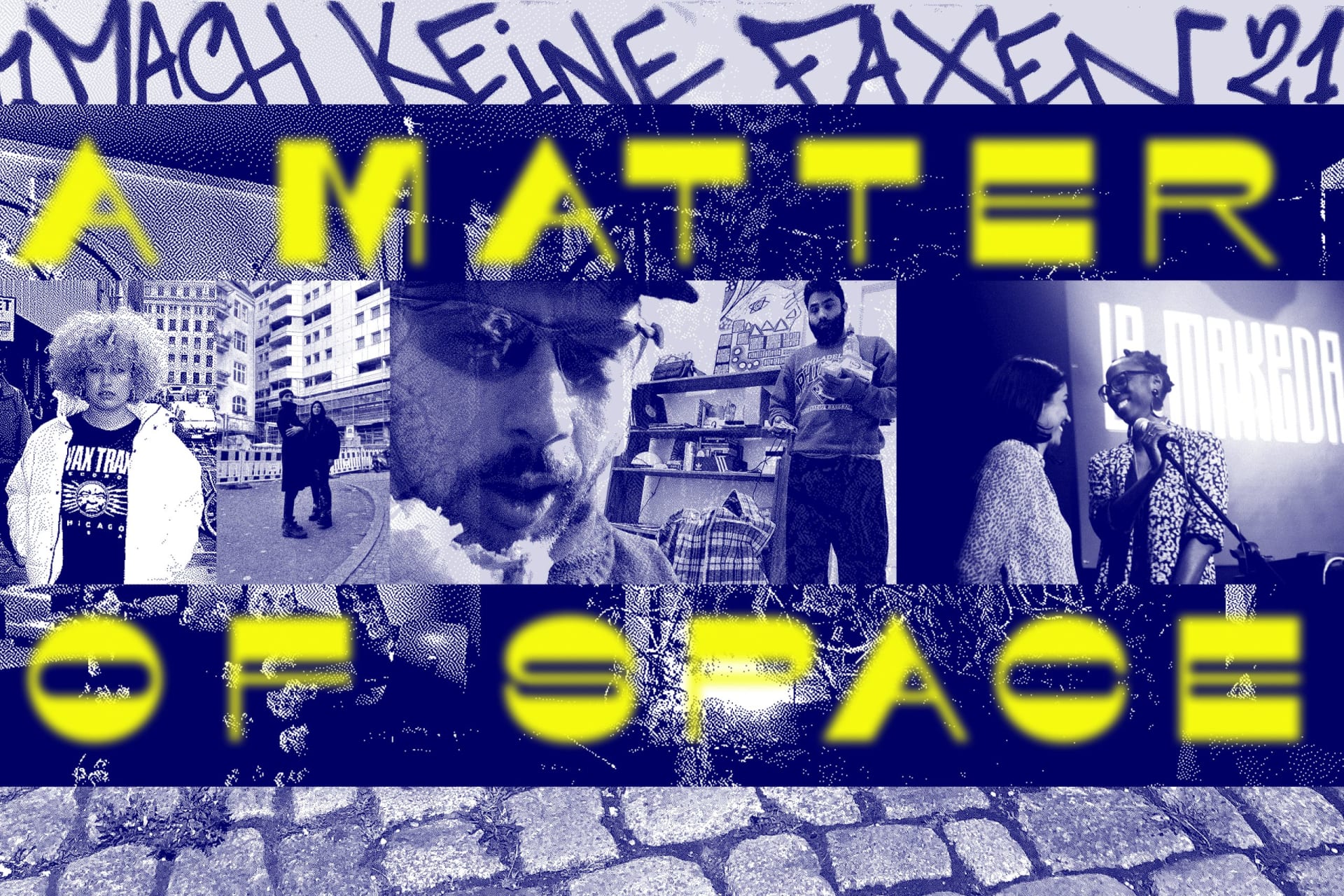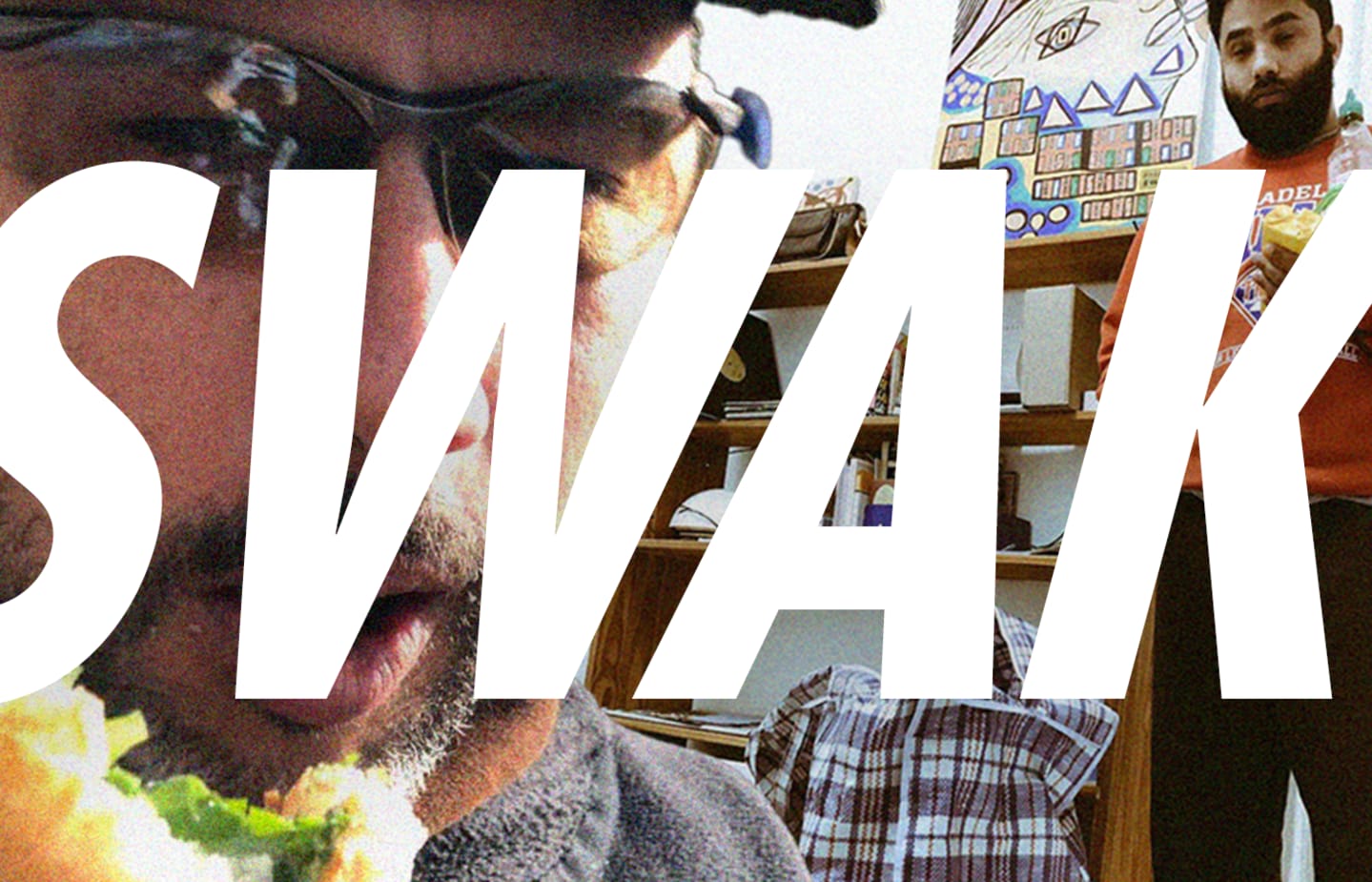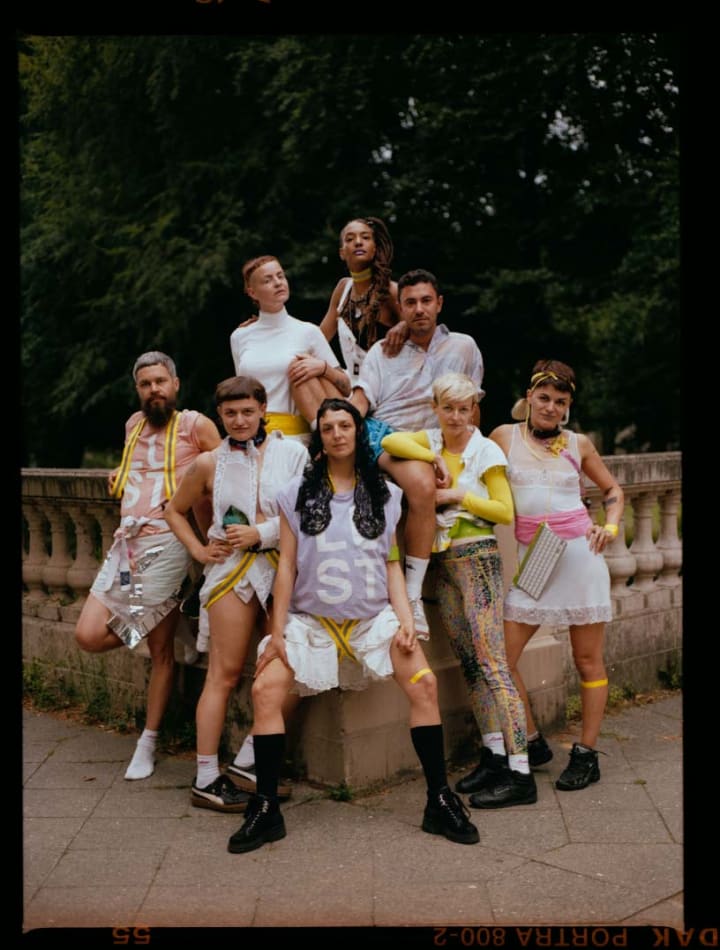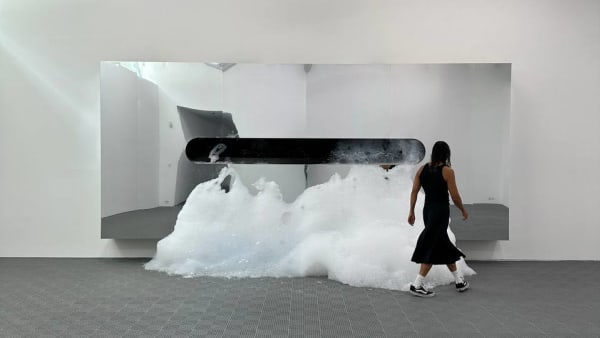

A matter of space: how nightlife communities fight gatekeeping
In a challenging environment of real-estate pressure and accessibility issues, local scenes try to survive and stay true to their values
Throughout history, marginalized communities have found a nurturing environment in clubs, at least since the inception of house music in the late 70s: a time when pioneering figures like Frankie Knuckles gave its fame to The Warehouse, drawing members at the intersection of the black and queer communities to West Central Chicago as Larry Levan did in SoHo, New-York City.
Fast-forward to 2021, and the obvious commodification of the blooming underground scene raises the question of how local actors from marginalized communities get access or ownership to physical space for their events. Gatekeeping, defined as acting as an arbiter of quality or legitimacy, translates for dance music communities into many hurdles for those who seek to access venues or to secure the ownership of buildings.


Frank and Masha, both co-founders of Dry, were looking to open up their venue in Berlin for a while without success. “A big problem in Berlin is the neighbour situation”, explains Frank. “Every time we approach building owners as a music agency, we are facing backlash. Even though we were not focussing on clubbing exclusively, but on art exhibitions, concerts, and a community space.” The offers from the building owners they were in conversation with were not feasible: think investments in the €40.000, short-term rent contracts over a maximum twelve months period. The two almost gave up on their dream of a venue in Berlin: “The lack of respect we’ve experienced in conversations were outstanding, and the people across the meeting tables were exclusively white cis men.”
They hosted an event at the recently opened venue Cura, a new promising collaboration. New venues in Berlin are therefore not a long gone dream. A venue supported by Berlin’s club lobby, Clubcommission. The network has been fighting locally for years for their members to survive gentrification. Their influence within the political landscape brought them into a position where they are able to discuss potential openings of buildings for events. This is helpful for their members, but initiatives that are not merged into their structures can feel left out.
How does a collective navigate a collaboration with their venue? SWAK, a collective spread between Cape Town (Aryu Jassika), and Berlin (Nico), got spontaneously approached in 2018 by a Berlin space to book their own events. Having witnessed the imbalance of diversity in the city for a while, they were excited to seize this opportunity and change the status quo: “We noticed it was quite four to the floor techno, it was very white, it had been Europeanized. When people thought of techno, they thought of white people, they thought of Berlin.”
Aryu Jassika and Nico were thrilled to become actors of the local nightlife. “There is so much diversity out there to this name or label techno, that we need to try to implement this—like somehow inject it into the Berlin scene.” SWAK had a standard contract with the venue. They would get a budget as bookers for their party to curate their line-ups. The challenges were hidden in the process of approval. “[…] whenever it was a Black or PoC artists, you would then have to send Instagram followers, SoundCloud links. ‘Who are they?’ Whatever. Any white artist was just cool to book. Then there were fights—both of us have IBS now because of the last three years,” they laugh.
The discussions about fair wages are even more relevant in the club scene. The scene doesn’t have unions to fight for balanced payments or representation of people of colour. Actors in the Berlin nightlife are somehow part of rave culture, and with that, certain ethics should be reflected within people. Aryu Jassika remembers: “Even people we knew were getting paid less because they were dictating it. Whenever it was a white artist, there was no question. And then obviously all the racist stuff came out with Nico’s friend. And then like, this is it now, we can’t be a part of this.“
Racist allegations in Berlin are now regular occurrences. “There’s a lot of work to be done in that club, and having an awareness team and doing courses and stuff is literally only the beginning,” Nico adds, “But what is the next step? And there have been no next steps.” SWAK started to create their own platform outside a venue. Being in control of decisions and projects, they were able to provide community work and provide help in the pandemic, whilst still continuing to focus on nightlife-related topics.
During the pandemic, they started to prioritize community care. Nico joined a mutual aid organization in Berlin. Aryiu Jassika started to release music on the SWAK Catalog (co-curated by Jumping Back Slash), donating their proceeds to the sex workers organization Sweat in Cape Town and to African Reclaimers, an organization in Johannesburg. SWAK is now hosted on Refuge Worldwide, where they showcase talent from South Africa as well as Berlin, continuing the curation they started in clubs before the pandemic.

The second insight into Berlin’s nightlife stems from a collective without a fixed space. A circumstance many collectives find themselves in. Beloved feminist queer party collective Lecken started throwing raves 5 years ago, and have been creating a partying space along with dark rooms that focus on female pleasure, care, based on feminist principles. The foundation of their project is community work, with collective practices that emphasize not only sexual consent and the creation of safer spaces, but also cultivates practices of horizontal organizing, awareness and mutual respect with a DIY mentality. They handle the production with a six-person team for a recurrent crowd of 400 people. This requires a lot of work behind the scenes with various roles across the team, based on availability and experience. For them it is key to try to respect their own workers rights, and bonds of friendship and care.

When Lecken organizes an event, the collective takes over the whole venue with all their staff members. The safety inside the party is their own responsibility. Taking over control over the entire venue seems to be a way to guarantee their high safety standards, in an industry where a lot of staff members lack proper training, or simply hold prejudice and act on it, as Josie Thaddeus-Johns highlighted in the article Anything Goes in Berlin’s Clubs. But Are Bouncers Killing the Vibe? The recent Revier Südost allegations of discriminatory behaviour from their staff are part of the reasons why collectives that aim at providing a safe space for QTBIPOC attendees shy away from working with the regular security teams of Berlin’s clubs, as they experienced encounters similar to the ones described by punters.
Wanda from Lecken adds, “Even where we work with security teams, for instance, we never allow the club’s security team to go inside the club and control the club. We have our own QTPoC selection team that also enforces or maintains certain standards of safety. This is a safe threshold, I would say, between the outside and the inside of the club. And then inside, we have our own native awareness team, that makes sure the party runs according to our principles.” A complex operation to maintain at those standards–not every collective has the experience and option to work like that. But this kind of environment could be guaranteed by the venues that want to welcome those collectives.
Rife real estate pressure in Europe’s cultural hotspots makes spaces difficult to access or preserve. Collectives like Lecken still managed to strive and survive with their feminist politics and dimension of care. Beside throwing events, they have projects like a “Social Pleasure centre,” Wanda explains, “which is like a mobile social centre, because we don’t have access to a fixed space. It’s a container for cultural activities, but also activities of relaxation, rest, and restoration. Ideas or formats that can restore people’s energies in order to generate more creativity, and build deeper relations between people.”
Community care and safety over capitalist motives? It’s hard to compete in this rental market, especially for event spaces. The Netherlands seems to be one of the pioneers regarding the regulated usage of free spaces. In Amsterdam, a collective investigates property speculators: the SPOK (spekulatie onderzoeks kollektie), as an answer to the phenomenon of housing speculation. The squat movement, which started in the 60s in the Netherlands, also seemed to find an ally in the city hall after decades of struggle. They bought 200 buildings in the early 1980s, handing them over to housing non-profits, which made contracts with tenants.
Amsterdam’s Liese Kingma first started thinking about those questions in this vibrant squat scene. Now based in Berlin, she curates the FREI[T]RÄUME – Envisioning Free Space Conference taking place in Berlin this November 27th at Oyoun. She is a member of Kollektiv Spieltrieb, who, among other projects, works on the platform Space Of Urgency. In their own words, their project “draws immediate attention to the precarious position of independent cultural spaces.”
“So in every other city, the spaces are being evicted. If you compare it to a city like Amsterdam, where there’s a free space policy in place trying to protect spaces and actually free up space, for this kind of self-organized situations and night culture, it’s more easy (…). But when the environment is drastically the opposite, I think it’s difficult. I think everybody does, because the interaction or collaboration between self-organized actors and trust between local governments is non-existent in a lot of places.”
Another project of Kollektiv Spieltrieb is a mapping tool for efficient location identification and simplification of the administrative approval process for cultural events in public spaces. This tool is currently developed in two local districts of Berlin, to help music event organizers to better select suitable public spaces, and make the necessary applications.
Sarra Wild, who leads the OH141 collective in Glasgow, explains how the politics and ethics around organizing and booking practices needed a transformation towards more inclusivity and care towards race, gender, class, and sexuality, both for artists and festival workers. The lack of diversity and representation is not only an issue on line-ups. It is an issue that has been reported on for years, especially behind the scenes. Sarra had worked in the industry for five years before they started OH141. As a stage manager, artist liaison, PR person, flyer runner, like every position in organizing and club management: “I […] was probably the only womxn in every setting I was in. Or I was probably the only Black or Brown person in that room, realizing that there was probably five women in total in Glasgow that were highlighted. And even then they weren’t being celebrated or given anywhere near as many opportunities as the men. Zero Black and Brown presence. Or if there was, they were just, again, sidelined.”
“They think bringing one Black Detroit DJ every couple of months, is it? And that’s not at all. We’ve talked about this before, that it needs to be a much greater issue than just supporting one Black DJ from Detroit.”
In the middle of the ’90s, the idea of an “axis of techno” was floating around, building bridges between Rubadubin Glasgow and Hardwax in Berlin, Sonic Groove in New York City and FatCat in London. Specialized in selling forward-thinking techno records–with the majority from Detroit–this US-centric view anchored itself in the Glaswegian scene, overlooking its local Black population, in a context where Glasgow hosts half of the Black population of Scotland.
Finding that dance music’s roots in marginalized Black communities haven’t translated into the industry, Sarra has put a great effort into becoming a proactive agent of change when working with Jupiter Rising–a two-night campout festival part of the Jupiter Artland Foundation, one of Scotland’s most significant arts organizations. This was only possible once they got themselves into a decision-making position.
Predominantly Black and Brown/and or trans party-goers visited the OH141 stage of the festival, while other stages had a clearly less diverse crowd. At that point, they asked for more responsibilities. “So then I started co-curating the other stages. This year, I brought on a “head of tech” as a woman, and hired more Black and Brown people to be involved behind the scenes. More women are involved behind the thing–it’s growing. But it’s not without its challenges, because I’m still working with a white institution.”

In Marseille, the second-most populous city in France, Aude Kaboré and Francine Ouedrago Bonnot were organizing events with their production company Orizon Sud since 2008, managing artists and organizing festivals. They were hosting a regular event to discover new talent in a twenty-seven years old venue called “Poste à galène”, before taking it over in 2019. It was owned before by two white men who were promoting rock concerts as the spot’s main activity. “And now it’s two women, and an eclectic atmosphere,” laughs Francine.
The lack of inclusion in large venues for people with different ethnic backgrounds and sexual orientations, and the lack of middle-sized clubs (200 to 300 people) with a decent quality sound system in the centre of Marseille, motivated Aude and Francine to get started. They opened their venue to community work too. “We are not solely a music venue, we also do community work, for example we hosted events to feed the unhoused, where we asked our community for warm clothes and grocery last winter. And we welcome people of different ethnic background and sexual orientations to our parties,” says Francine. Aude adds “Definitely it wasn’t a given to have a venue with this kind of openness regarding the crowd that get to come in, and with the programming–we book live acts and DJs”.
Being the only women-owned club in France at the time, she faced challenges: “What is tough in my case, as a black woman, is that when I first started, they weren’t–and they still aren’t–many people who look like me in this field. I mean, we were at this industry event last week with people from all over France, and I was the only black person there”.
On the current efforts of the industry faced by the need for change, “I think, a lot of minorities are at the beginning of projects in culture.” adds Francine. “But when it comes to get hired in positions, it’s where it gets complicated. There should be more effort put into this professionalization aspect.”
The historical lack of distribution of wealth and access to venues and resources creates an inherited environment of gatekeepers–people in positions of decision-making and budgeting. The lack of knowledge, awareness, and experience creates a lack of understanding, and should be at the centre of upcoming efforts. Token hiring–recruiting an employee from a diverse background in order to give the appearance of gender or racial equality, without in-depth internal policy changes–is harmful for those individuals, and also puts guests and community members who visit those events further at risk. For marginalized communities, the key to building resilience would rather be to try and make the most out of the environment that they operate in at a local level–what can work for Glasgow might not work for Berlin, and vice-versa.
How can we locally build an alternative in order to allow actors to maintain ownership, or even get access to physical space in the first place? Testimonies seem to converge towards a mix of sharing best practices internationally, and finding ways to build solidarity. And that change needs to happen behind the scenes, in decision-making positions, and at every level of the dance music industry. Cosmetic changes can only continue to fail the existential needs of safety and comfort for those who are the most dependent on events, parties, community care, and simply money to survive.
As Sarra from OH141 puts it, “When things blew up in Minneapolis, then everyone went after Black people. But then now it’s died down again. So I think the most genuine way is to be about it, is to engage from the start to the end. Like building genuine relationships with people. So you want Black and Brown people in your crowds? Engage with them, and be part of that community and build connections for it to be genuine. Like regular check-ins and regular updates. It makes more sense than ‘let me write one article about you’, and then it’s ‘see you later’.”
Published November 03, 2021. Words by Hansi Keil & Jean-Hugues Kabuiku.






Follow @electronicbeats